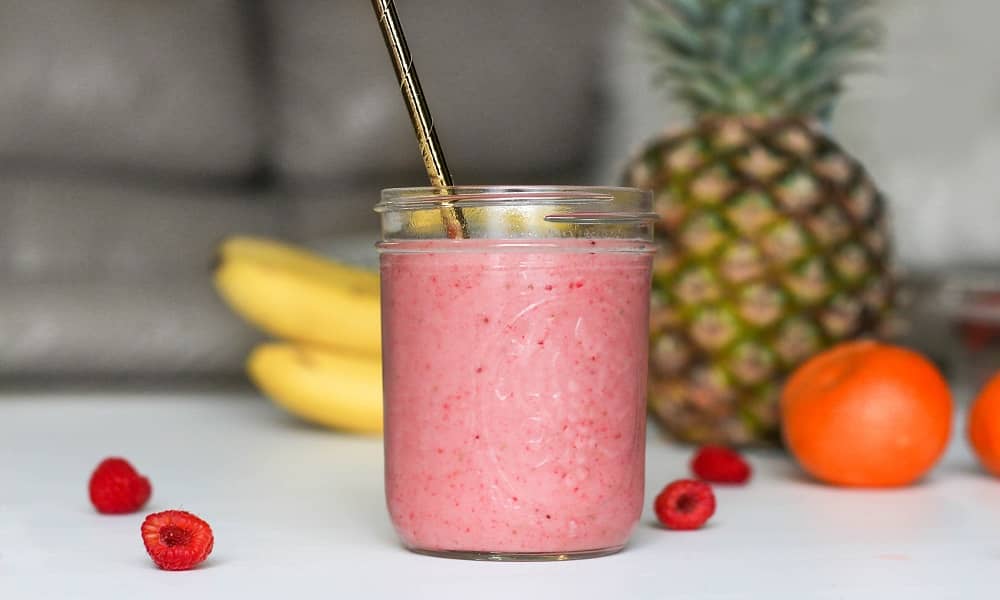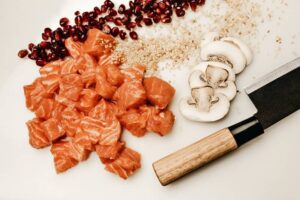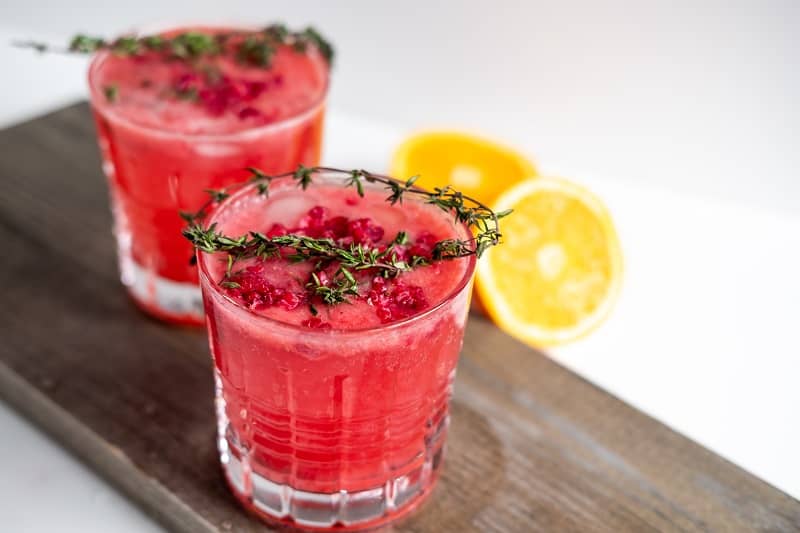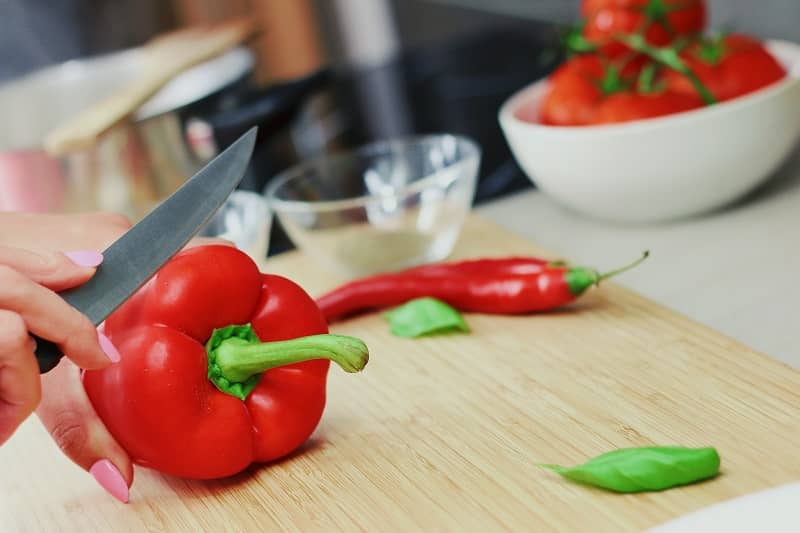
23 Sep Foods & Drinks That Fight Inflammation Naturally + 5 Useful Tips
Many studies have reported certain foods and beverages to have anti-inflammatory effects on the body.
Including such foods that help with inflammation in your diet can prevent many major diseases like:
- Cancer
- Heart diseases
- Diabetes
- Arthritis
- Alzheimer’s
However, some foods cause inflammation and, hence, choosing the right anti-inflammatory foods can become tricky.
While good picks can fight major illnesses, the wrong ones can accelerate illness.
Thus, in the following blog, we carefully pick up the most beneficial inflammation diet foods.
Foods to Reduce Inflammation Naturally!
An anti-inflammatory diet is helpful in many manners as the foods not just reduce inflammation but also help you harness other health benefits.
However, foods to reduce inflammation are only effective in reducing milder cases of inflammation. For example, it won’t be able to treat the inflammation caused by arthritis but it might relieve your symptoms.
Hence, medications and other treatments are important in such major cases.
But when it comes to inflammation, experts do believe that diet can be of a lot of help.
Top 8 Best Anti-Inflammatory Foods

- Berries
- Fish
- Broccoli
- Avocado
- Pineapple
- Pepper
- Mushrooms
- Grapes
Moreover, there are many types of anti-inflammatory diets that people follow around the world.
For example, anti-inflammatory choices in a Mediterranean diet are quite popular among people. It mainly consists of fruits, veggies, fish, whole grains, and fats which are healthy for your heart.
However, you can prepare your diet by just adding and cutting out certain foods.
When preparing a low inflammation diet, make sure you go ahead with the following rules in your mind:
- Add more plants — They have the anti-inflammatory properties that you need
- Antioxidants — They help in repairing and protecting cells
- Omega-3s — It regulates the body’s inflammatory process
- Less red meat — Red meat is pro-inflammatory
- No processed stuff — They are all pro-inflammatory
Keeping all these thumb rules in mind, here are some of the best foods to reduce inflammation:
#1. Berries
All berries come loaded with rich amounts of antioxidants that have anti-inflammatory effects that help regulate diabetes too.
Some other nutrients that help in the anti-inflammatory activities of berries include vitamins, fiber, and minerals.
#2. Fishes
Rich in sources of omega-3-fatty acids, fatty fish is what you need in your meal to reduce inflammation.
Apart from that, it contains DHA and EPA that help in reducing the inflammation that can cause metabolic syndrome.
#3. Broccoli
They have anti-inflammatory as well as antioxidant properties that beat inflammation and, hence, are actively suggested to people with heart problems.
It also contains sulforaphane that reduces your levels of cytokines, which is responsible for increasing inflammation action.
#4. Avocados
The healthy nutrients that come packed in Avocados are:
- Potassium
- Magnesium
- Fiber
- Monounsaturated fats
According to evidence, avocados can reduce inflammation in skin cells.
#5. Pineapple
Pineapples can seriously help you fight the risk of some serious diseases due to the presence of superior anti-inflammatory properties.
The main benefits when it comes to reducing inflammation can be chalked up to pineapples’s enzyme, bromelain.
Due to being rich in antioxidants, it also helps fight free radicals effectively.
#6. Peppers
The Vitamin C present in peppers contributes to its anti-inflammatory properties.
They also help in reducing the oxidative damage of cells in people suffering from a specific type of inflammatory disease.
#7. Mushrooms
Its anti-inflammatory properties are driven by the presence of phenols and antioxidants.
However, for extracting the most benefits out of it, we recommend you to eat them raw in the form of salads or other dressings.
#8. Grapes
They have anthocyanins that contribute to their anti-inflammatory properties.
Apart from that, grapes also hold the ability to relieve symptoms of many diseases like diabetes and obesity.
Next, we also have some refreshing drinks that you must have in your anti-inflammation diet.
What can I Drink to Reduce Inflammation?

The best way to give the inflammation a soothing way out of your body is by mixing up anti-inflammatory fruits into refreshing smoothies.
The following drinks that we are gonna add up to your recipe book are loaded with antioxidants and support your overall health.
Here are a few useful ideas that can make your wellness journey more enjoyable:
#1. Smoothie – Apple, Beet, and Carrot
Blending these three vital ingredients will give you a perfect dose of antioxidants that can fight inflammation easily.
Ingredients – Red beet, apples, carrots, ginger, and orange juice.
Process – Take all the ingredients together (you can peel the veggies if you want to but remember it’s the skin that holds many benefits) and blend until smooth for 1 to 2 minutes.
#2. Turmeric Tea
Turmeric holds a powerhouse of anti-inflammatory properties and many other health benefits.
Also loaded with antioxidants, it gives you the perfect drink to reduce inflammation.
Ingredients – Turmeric, lemon juice, honey, and black pepper
Procedure:
- Add all the ingredients into a pot and put it to boil
- Heat until the tea starts boiling
- Turn down the flame to medium and simmer for ten minutes
#3. Green Tea
Green tea, as you must already know, has a high content of antioxidants.
The reason behind the tea being listed in the anti-inflammatory foods list is its anti-inflammatory properties fuelled by the presence of EGCG.
EGCG has an active role in reducing inflammation.
#4. Green Juice
Instead of going for those tetra packs, how about we make a super green anti-inflammatory drink right on your kitchen counter.
Prepared with fresh kale, spinach, cucumber, and ginger, they give you a fresh boost of antioxidants.
Ingredients – Kale, spinach, celery, cucumber, ginger, apples, and lime juice.
Procedure:
- Blend your cucumber and celery in a blender first
- Add the other ingredients and blend until smooth
- Strain the liquid separating it from the remains
- Pour it, chill it, drink it!
#5. Smoothie – Pineapple and Turmeric
They have two anti-inflammatory sources, pineapple and turmeric, and are also loaded with some vital nutrients making it the perfect drink that you want.
Ingredients – 1 cup of dairy-free milk, 2 cups frozen pineapple, 1 banana, 1 tablespoon of fresh turmeric, and 1 teaspoon of ginger.
All you gotta do is blend all the ingredients until it becomes smooth with a thick consistency.
#6. Blueberry Smoothie
The creamy smoothie has a rich amount of antioxidants that is useful for removing inflammation.
Ingredients – 2 cups of coconut water, 2 cups frozen blueberries, 1 frozen banana, ½ cup yogurt, and 1 tablespoon of flax seeds.
Blend all the ingredients for 30 seconds or until a creamy texture appears.
#7. Jamu Juice
Jamu juice keeps your body balanced and has been used as a healing tonic for ages.
Ingredients – 1 cup of turmeric, 1 finger-sized ginger, 4 cups of coconut water, juice of 1 lemon, and 2 tablespoons of honey for sweetness with black pepper.
Blend ginger, turmeric, black pepper, and coconut water in a blender. Pour the mixture into a bowl and then boil. Now, reduce the flame and let the mixture simmer for at least twenty minutes.
Add lemon juice and honey while giving it a good stir.
Strain the mixture using a fine-mesh sieve then pour in a glass or jar and refrigerate it.
Here’s how following these diet recommendations will help you…
How Does Diet Help with Inflammation?

Although scientists are still closely analyzing the effect of food on your inflammatory processes, experts have already been gathering conclusions.
According to many health experts, your diet affects the production of C-reactive protein, which is a biomarker for inflammation.
Moreover, processed foods can stimulate the production of inflammatory messengers increasing the risk of chronic inflammation.
But foods like fruits and veggies can help your body fight those, hampering your oxidative stress.
Presenting you with a prominent study conducted to curate a diet for Rheumatoid arthritis patients suffering from inflammation, we highlight the importance that your diet plan holds.
Evidence
As per research so far, there exists a group of non-inflammatory foods and inflammatory foods that can either initiate or prevent an inflammatory reaction occurring in absence of any microbes.
Also, many literary works define a connection between diet and microbiome changes.
But still, the evidence lies scarcely about the effects of an anti-inflammatory diet on patients with RA.
The Study
A study was conducted focusing on designing a dietary pattern for a certain population suffering from RA (Rheumatoid Arthritis) and showing symptoms of inflammation.
Method
Information regarding diet and cooking methods was noted for each participant.
Results
A diet consisting of many anti-inflammatory foods was created.
This established that anti-inflammatory foods can help fight inflammation as per the feedback that the users received.
However, no matter how the anti-inflammatory drinks and foods work really well for reducing and preventing further inflammation, there are some preventive measures that one should always take.
5 Tips to Reduce Inflammation
One of the most important measures to reduce inflammation is controlling your diet. Eating foods loaded with anti-inflammatory properties is one such way of controlling diet.
Apart from this important step, there are a few additional useful tips that you should follow for more effective treatment of inflammation:
- Avoid eating inflammatory foods
- Manage blood sugar levels
- Exercise regularly
- Avoid obesity and manage weight gain
- Reduce stress levels
Here’s how to incorporate these changes into your daily routine.
#1. Reduce the Intake of Inflammatory Foods
Just like you have anti-inflammatory foods to gorge on, there are also inflammatory foods to avoid.
Inflammatory foods can either increase inflammation in your body or even be the primary cause of your inflammation.
Hence, when shopping for groceries, make sure you keep in mind the following inflammatory foods chart to avoid picking them up:
- Sugar and high fructose corn sugar
- Processed foods and artificial trans fat
- Vegetable and seed oils
- Refined carbs like bread, pasta, cookies, and cakes.
- Alcohol
- Processed meat
#2. Control Your Blood Sugar
Limiting sugar like fructose can help regulate your blood sugar levels. Also, avoid foods like white bread, rice, and pasta to help people who have their sugar levels on the margin line.
Since diabetic patients have higher chances of inflammation, it is always advised to keep your sugar cravings under the lid.
#3. Regular Exercises
Exercising, according to health experts, is the best way to prevent inflammation. Do at least 30 to 45 minutes of aerobic exercise to keep your body active.
10 to 25 minutes of weight resistance exercises can be helpful too.
#4. Weight Management
Obesity invites many diseases which include inflammation.
Hence, if you are overweight, try losing those extra pounds to reduce inflammation.
#5. Keep Stress Under Locks
Chronic stress has been found to be a contributing factor to inflammation.
Though you won’t be able to change the stressful situations in life, you can change the way you react and respond to these situations.
The Takeaway
If you too are looking for solutions to “how to reduce inflammation in the body fast”, try picking out some smart foods during your grocery shopping.
Diet, according to popular research, is the best way to fight and prevent inflammation.
Your diet must contain foods that are not just rich in nutrients but also have vital anti-inflammatory properties!
Yes, adding anti-inflammatory foods to your diet can relieve the symptoms of inflammation faster and quicker than your regular eating plan.
Combining them with healthy habits would be more beneficial.
FAQs
Here are some of the most frequently asked questions related to inflammation and foods that reduce it.
#1. What is the fastest way to reduce inflammation in the body?
The fastest way to reduce inflammation in your body is by bringing a few changes in your lifestyle and eating pattern.
Some useful rules to get rid of inflammation as early as possible are:
- Eating more plants
- Focusing on antioxidants
- Avoiding inflammatory foods like red meat
- Taking your omega-3 fatty acids adequately
- Cutting out processed foods
#2. What are the 5 classic signs of inflammation?
The five characterizing signs of inflammation are:
- Pain
- Heat
- Redness
- Swelling
- Loss of function in an area of your body
#3. What are the 10 worst foods for inflammation?
The top 10 worst foods for inflammation that you must avoid include:
- Sugar
- Common cooking oils
- Trans fat
- Dairy products
- Feedlot raised meat
- Red meat
- Alcohol
- Refined grains
- Artificial food additives
#4. What is the strongest anti-inflammatory?
The strongest anti-inflammatory is the medications prescribed by doctors like diclofenac. However, you can even reduce inflammation naturally with the help of natural foods and drinks.
#5. Are eggs bad for inflammation?
No, they are not bad for inflammation. Rather the Vitamin D present in eggs helps modulate inflammatory response in rheumatoid arthritis making it the best anti-inflammatory food.
#6. Is coffee an inflammatory?
According to a review of 15 studies on the effects of coffee, caffeine, and other such compounds on inflammation, low, medium, and high caffeine have moderate anti-inflammatory effects.
However, there are also suggestions from experts that coffee can cause inflammation in some people.
Hence, we don’t have any piece of solid evidence on whether coffee is inflammatory or not for certain.
#7. Do bananas cause inflammation?
No, they have anti-inflammatory properties because of the rich presence of antioxidants that helps in keeping your immunity strong too.
#8. What vegetables are bad for inflammation?
Certain veggies that can accelerate inflammation are:
- Eggplants
- Peppers
- Tomatoes
- Peppers
Hopefully, you’ve found the above information useful in planning your anti-inflammatory diet. Leave your comments and queries below, and we’ll get right back to you.



No Comments